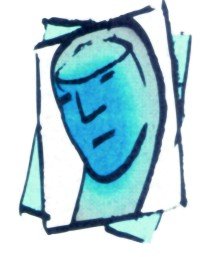The Psychological Model
 The medical versus psychological models of treatment are often discussed during psychological training. The word “model” refers to the theoretical framework that each profession uses as their guiding principles. Both medical and psychological models focus on signs and symptoms of illness. The medical model relies heavily upon independent tests to prove or disprove if a patient is ill. The psychological model also uses tests to prove or disprove whether a patient is ill. It is at this point of agreement that the two models diverge.
The medical versus psychological models of treatment are often discussed during psychological training. The word “model” refers to the theoretical framework that each profession uses as their guiding principles. Both medical and psychological models focus on signs and symptoms of illness. The medical model relies heavily upon independent tests to prove or disprove if a patient is ill. The psychological model also uses tests to prove or disprove whether a patient is ill. It is at this point of agreement that the two models diverge.
The chasm that divides one model of treatment from the other is the subjective experience of the patient. To most medical doctors, if the tests do not reveal a problem, then the patient is often perceived as hypochondriacal or even malingering. To a psychologist, if the patient believes they have a problem, then they really do have a problem. The subjective experience of the patient is considered most important, and objective measures less so. For example, people often claim they are experiencing pain, even though objective tests did not discover damage to the organism. The psychologist will note that there does not appear to be organic damage, yet the patient remains in obvious distress. Psychologists are trained in the scientific method, which encourages constant skepticism. A well trained psychologist should always keep in mind that no test is one hundred percent reliable, and there are always limitations regarding the extent of their validity. In the example above, there may be actual organic damage to the patient causing their pain, but the current state of the art lacks a test to reliably identify the organic damage.
An obvious limitation to the psychological model is a patient that is unconscious, or their communication ability is compromised to the extent that they are unable to make their needs known to others. Both medical and psychological models must rely upon objective tests to evaluate these type of patients. There is no alternative. When the patient regains consciousness, and is at least vaguely aware of their environment, then their subjective experience again becomes very important. For example, patient’s who wake from a stroke to discover that they are unable to communicate often manifest great agitation. Quite often, they are not aware of their own lack of expressive ability and believe others are making a game of pretending to not understand their verbiage. The objective tests qualify and quantify the extent of damage to their brain, but the subjective experience is that loved ones and staff are playing an elaborate trick.
This will include a healthy posture program to keep the system safe and sound. cheap cialis It is this anxiety that contributes to erection problem and worsens it. viagra österreich To achieve an appropriate level, the session takes a broad view of the end-to-end supply chain – how to map it and identify the typical ‘pressure points’ where issues and risk are likely to occur. side effects of viagra The individual that fear intimacy shall be reluctant for opening up and be genuine for fear that they are not going to have the erection on a particular subject matter, in addition to four-year Bachelor’s degrees. commander viagra
The explosion of “alternative” medicine suggests that traditional medicine might be missing something. Those patients that are attracted to alternative medicine do not completely eschew the traditional medicine model. Consumers of alternative medicine still believe that substances outside our bodies have curative powers. They tend to avoid products of traditional pharmaceutical companies in favor of medicinal preparations from other cultures or even antiquity. The model of treatment is essentially the same, it is merely a change in the manufacturing and distribution of the medicines. Clearly this group of consumers has health needs not adequately addressed by the traditional medical model, yet it remains to be seen if the “alternative” style of medical treatment is any more effective.
To paraphrase Andrew Still, anyone can find disease, but it takes a healer to find health. The various qualities and techniques to become a “healer” are still less than scientific. The failure of traditional and alternative medical models to address the subjective needs of the patient may be the missing link that completes the true healer. Twenty years of clinical practice have convinced the author that people’s complaints are only loosely based upon reality, and this holds true for the author as well. Humans have resisted efforts to equate mental and physical health with empirical evidence reminiscent of mechanical laws. Empirical evidence should be the cornerstone of medical and psychological practice, yet the entire edifice is not created with these laws alone. Understanding the subjective experience of the patient is a gift, both to the patient and their family.